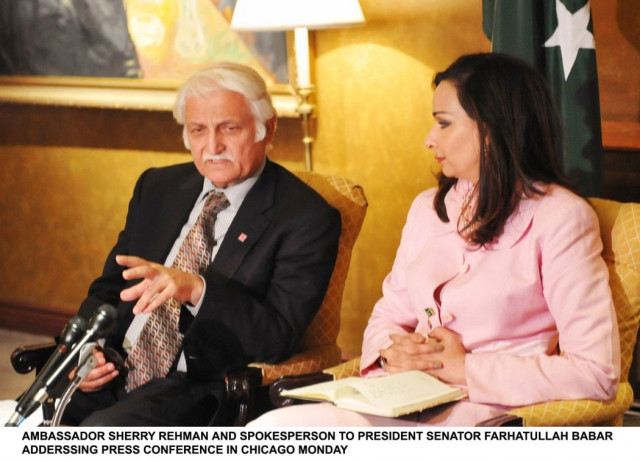Islamising laws: In a first, Senate debates CII annual report
Some senators argue against the existence of the body

File photo of Senator Farhatullah Babar. PHOTO: ONLINE
The upper house of parliament on Tuesday held the first-ever debate on the annual report of the Council of Islamic Ideology (CII), with some saying the body had completed its task while others argued against its existence.
PPP Senator Farhatullah Babar kicked off the debate in which MPs said the constitutional body responsible for providing legal advice on Islamic issues to the government and parliament could only recommend legislation but it was, ultimately, parliament’s job to legislate.
Blasphemy and punishment: SC has ‘limited powers’ to interpret Islamic laws
However, referring to Article 230(4) of the Constitution, MQM Senator Barrister Saif said: “CII’s recommendations become mandatory and we should discuss this particular change introduced by former military dictator General Ziaul Haq.”
According to Article 230(4), “The Islamic council shall submit its final report within seven years of its appointment, and shall submit an annual interim report. The report, whether interim or final, shall be laid for discussion before both houses and each provincial assembly within six months of its receipt, and parliament and the assembly, after considering the report, shall enact laws in respect thereof within a period of two years of the final report.”

Senator Babar questioned the constitutional and legal status of the council and its reports, and suggested the matter be referred to the law and justice committee for an expert legal opinion.
Quoting from CII’s 2011-12 report, he said that even the council had admitted that after the submission of its final report in December 1996, the task assigned to it was completed and the body was no longer constitutionally required to continue submitting annual reports to parliament.
Moreover, he added, according to the council’s special 2008 report, 90% of the country’s laws are not in conflict with Islam and only 10% may be reviewed by parliament. “Examining those laws is now the domain of parliament and not of the council.”
Supreme Court moved against quacks, healers
The PPP senator also cited some controversial CII announcements: the body had rejected a draft bill for establishing homes for the elderly saying the idea was against the norms and traditions of society, rejected the Women’s Protection Bill 2006, and declared that DNA test results were ‘unacceptable’ as primary evidence in rape cases.
Senate Chairman Raza Rabbani said there was no mention in the Constitution that the CII would cease to exist after submitting its final report; therefore, the matter should not be sent to the standing committee. His views were endorsed by the leader of the house, Raja Zafarul Haq.
Regarding the complaint of Maulana Attaur Rehman and Hafiz Hamdullah of the Jamiat Ulema-e-Islam-Fazl, opposition leader Aitzaz Ahsan clarified that none of the members criticised Islam. “The debate on the CII should not be viewed as a debate on Islam,” he said, adding that Islam was not responsible for the recent scuffle between the council’s members.
Meanwhile, the Senate directed the prime minister’s foreign affairs adviser to take the upper house into confidence on tensions between Saudi Arabia and Iran.
“The adviser [Sartaj Aziz] can brief an in-camera session, but this house cannot be devoid of information,” Rabbani said as he asked the leader of the house to convey the message for a briefing on Wednesday.
The issue came under discussion when Col (retd) Tahir Mashhadi of the MQM sought a statement from the adviser after highlighting the sensitivity of the issue and implications for the country. “Pakistan must remain neutral.... we don’t want to indulge in sectarian strife,” he added.
Rabbani admitted the adjournment motion and issued the direction, initially to Aziz, for a briefing, but Haq rose up and suggested otherwise: “...discussion at this stage [when] negotiations with both the countries are under way should not be opened,” he said.
In response, the Senate chairman said: “I am aware of the sensitivity of the situation, but the adviser has to brief on much wider issues, including visits of the Saudi foreign minister and defence minister, the quadrilateral meeting on Afghan peace, and the tension between the kingdom and Iran.
Published in The Express Tribune, January 13th, 2016.



















COMMENTS
Comments are moderated and generally will be posted if they are on-topic and not abusive.
For more information, please see our Comments FAQ